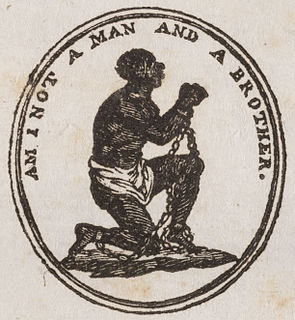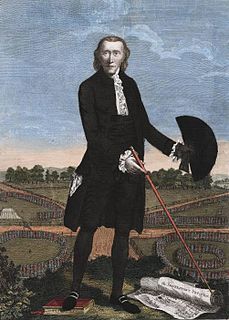
William Murray, 1st Earl of Mansfield, PC, SL was a British barrister, politician and judge noted for his reform of English law. Born to Scottish nobility, he was educated in Perth, Scotland, before moving to London at the age of 13 to take up a place at Westminster School. He was accepted into Christ Church, Oxford, in May 1723, and graduated four years later. Returning to London from Oxford, he was called to the Bar by Lincoln's Inn on 23 November 1730, and quickly gained a reputation as an excellent barrister.
In law, comity is "a practice among different political entities " involving the "mutual recognition of legislative, executive, and judicial acts."
Ex turpi causa non oritur actio is a legal doctrine which states that a plaintiff will be unable to pursue legal remedy if it arises in connection with his own illegal act. Particularly relevant in the law of contract, tort and trusts, ex turpi causa is also known as the illegality defence, since a defendant may plead that even though, for instance, he broke a contract, conducted himself negligently or broke an equitable duty, nevertheless a claimant by reason of his own illegality cannot sue.
The UK Supreme Court provided a thorough reconsideration of the doctrine in 2016 in Patel v Mirza.
Uberrima fides is a Latin phrase meaning "utmost good faith". It is the name of a legal doctrine which governs insurance contracts. This means that all parties to an insurance contract must deal in good faith, making a full declaration of all material facts in the insurance proposal. This contrasts with the legal doctrine caveat emptor.
Slavery at common law in former colonies of the British Empire developed slowly over centuries, and was characterised by inconsistent decisions and varying rationales for the treatment of slavery, the slave trade, and the rights of slaves and slave owners. Unlike in its colonies, within the home islands of Britain, until 1807, except for statutes facilitating and taxing the international slave trade, there was virtually no legislative intervention in relation to slaves as property, and accordingly the common law had something of a "free hand" to develop, untrammeled by the "paralysing hand of the Parliamentary draftsmen".
Insurance law is the practice of law surrounding insurance, including insurance policies and claims. It can be broadly broken into three categories - regulation of the business of insurance; regulation of the content of insurance policies, especially with regard to consumer policies; and regulation of claim
handling.
Events from the year 1778 in Great Britain.
Da Costa v Jones (1778) 2 Cowp 729 is a landmark English contract law case.
The publication of an obscene libel was an offence under the common law of England. Prior to the abolition by section 1 of the Criminal Law Act 1967 of the distinction between felony and misdemeanour, it was regarded as a misdemeanour. It has been abolished in England and Wales and Northern Ireland.

Hewison v Meridian Shipping Services Pte [2002] EWCA 1821 is an English tort law case, concerning an employer's liability for an employee's illegal acts.

Stone & Rolls Ltd v Moore Stephens [2009] UKHL 39 is a leading case relevant for UK company law and the law on fraud and ex turpi causa non oritur actio. The House of Lords decided by a majority of three to two that where the director and sole shareholder of a closely held private company deceived the auditors with fraud carried out on all creditors, subsequently the creditors of the insolvent company would be barred from suing the auditors for negligence from the shoes of the company. The Lords reasoned that where the company was only identifiable with one person, the fraud of that person would be attributable to the company, and the "company" could not rely on its own illegal fraud when bringing a claim for negligence against any auditors. It was the last case to be argued before the House of Lords.
Illegality in English law is a potential ground in English contract law, tort, trusts or UK company law for a court to refuse to enforce an obligation. The illegality of a transaction, either because of public policy under the common law, or because of legislation, potentially means no action directly concerning the deal will be heard by the courts. The doctrine is reminiscent of the Latin phrase "Ex turpi causa non oritur actio", meaning "no cause of action arises from a wrong". The primary problem arising when courts refuse to enforce an agreement is the extent to which an innocent party may recover any property already conveyed through the transaction. Hence, illegality raises important questions for English unjust enrichment law.

R v Baillie, also known as the Greenwich Hospital Case, was a 1778 prosecution of Thomas Baillie for criminal libel. The case initiated the legal career of Thomas Erskine. Baillie, the Lieutenant-Governor of the Greenwich Hospital for Seamen, a facility for injured or pensioned off seamen, had noted irregularities and corruption in the hospital, which was formally run by the Earl of Sandwich. After his official reporting of the problems failed to bring about reform in the hospital, Baillie published a pamphlet that was critical of the hospital's officers, alleging that Sandwich had given appointments to pay off political debts; Sandwich ignored the pamphlet but ensured that Baillie was indicted for criminal libel. Baillie hired five barristers, including Erskine, then newly called to the Bar, and appeared before Lord Mansfield in the Court of King's Bench on 23 November 1778.

Bhasin v Hrynew 2014 SCC 71 is a leading Canadian contract law case, concerning good faith as a basic organizing principle in contractual relations in Canada's common law jurisdictions.
Minshull v Minshull (1737) 26 ER 260 is an English trusts law case, concerning the principle of certainty for a will, known then as a "devise".

Holman v Johnson (1775) 1 Cowp 341 is an English contract law case, concerning the principles behind illegal transactions.
The rule against foreign revenue enforcement, often abbreviated to the revenue rule, is a general legal principle that the courts of one country will not enforce the tax laws of another country. The rule is part of the conflict of laws rules developed at common law, and forms part of the act of state doctrine.













